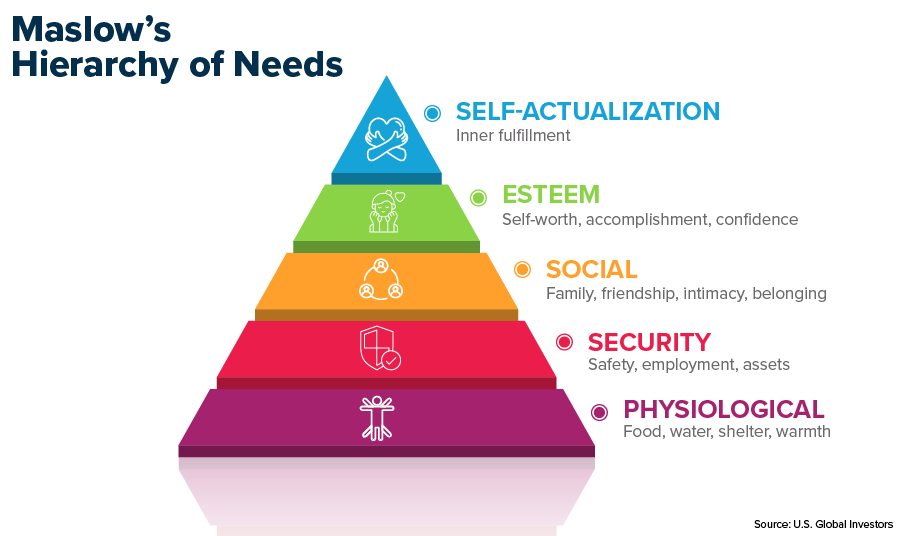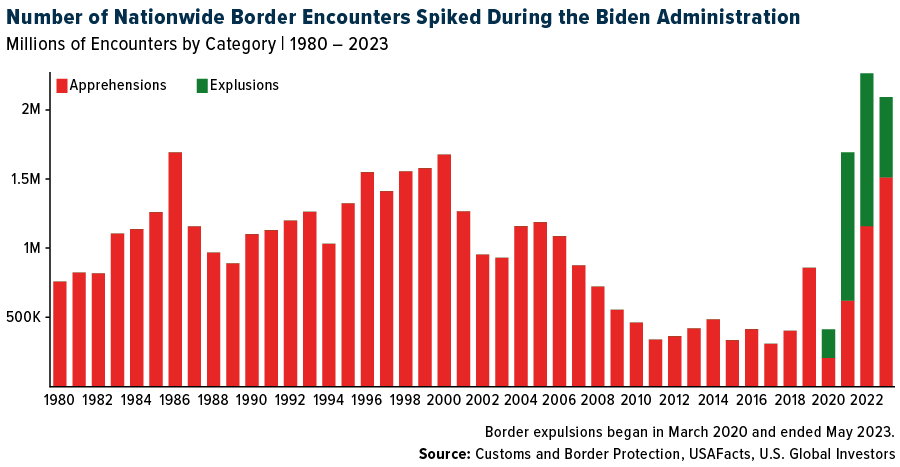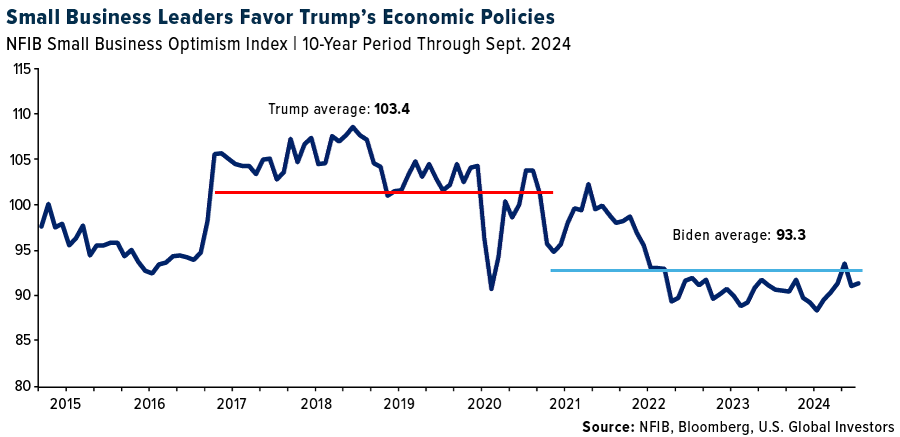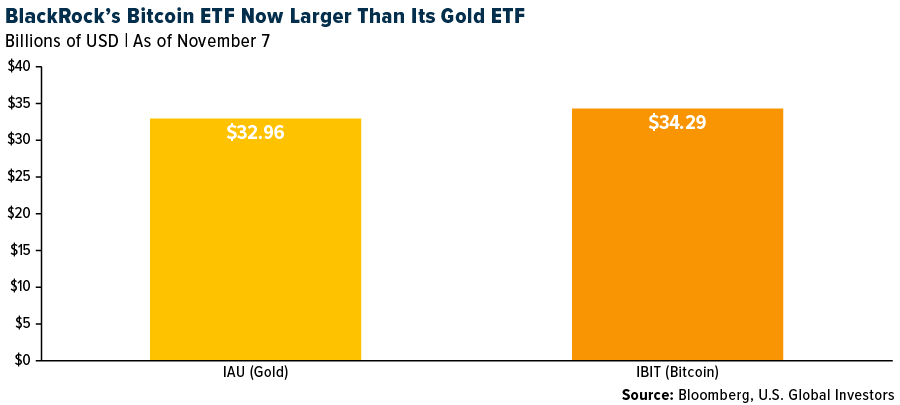SoFi CEO enters prepaid forward contract on 1.5 million shares
Maslow’s hierarchy of needs was a groundbreaking concept when it first appeared in 1943. American psychologist Abraham Maslow argued that certain basic needs—food, water, shelter, etc.—must be met before a person can move on to higher levels of self-worth and fulfillment.

Safety is another important, fundamental human need, one that I believe played a major role in last week’s election outcome. People want to feel safe, physically as well as financially. They want to feel protected in their homes and communities, and when they don’t, they take their outrage to the ballot box.
I wrote about this a little over a year ago. I believed then that the record numbers of illegal immigrants pouring across the Southern Border would end up hurting President Joe Biden’s then-reelection bid.
It appears that’s precisely what happened, based on the theory of wisdom of crowds. When Kamala Harris became the Democratic presidential nominee in August, she failed to convince voters that the problem would be fixed. Meanwhile, President-Elect Donald Trump aggressively ran on the issue of illegal immigration and border security, and he turned out the victor.

In hindsight, the writing was on the wall all along. A Gallup poll conducted back in February found that immigration was Americans’ number one concern. Over a quarter of people (28%) cited immigration as the most important problem facing the country, topping other issues like the government (20%), the economy (12%) and even inflation (11%).
Perceptions of Safety Are Shaping Spending and Policy
I’m aware of the many studies that show that immigrants commit crimes at lower rates than U.S. citizens. But as we all know, politics is perception, and the prevailing perception is that American towns and cities have become less safe due to an influx of unvetted, undocumented migrants.
This perception has grown strong enough to affect people’s spending behavior. On my early morning jogs through my neighborhood, I’ve noticed more and more families putting up fences, indicating a heightened sense of insecurity.
Voters are likewise telling elected officials they’re done playing nice with those who commit crime. Last week, California voters approved a measure that would impose harsher penalties for theft and drug trafficking, reversing “woke” criminal justice policies that have the perception of coddling criminals.
“America First” Policies to Support Domestic Corporations
I’d like to highlight some areas that I think could see a tailwind under a second Trump presidency.
As was the case during his first term, Trump is expected to prioritize business-friendly policies that especially favor companies that generate most of their revenue from domestic, rather than international, sales. Think small- to mid-cap stocks, many of which could be in a good position to benefit from lower income taxes and relaxed regulations.
Take a look at Trump’s favorability among small business leaders during his first term. The National Federation of Independent Business (NFIB) Optimism Index remained at historically elevated levels, scoring an average monthly reading of 103.4—even when you factor in the pandemic months.

The average reading under Biden has been about 10 points lower, indicating that entrepreneurs have lacked confidence in the country’s business climate. The NFIB reported last month that uncertainty was at its highest reading ever, due in large part to the upcoming election.
The Truth on Tariffs
But what about tariffs? Throughout his campaign, Trump touted the economic benefits of tariffs, claiming they will help ease deficit spending, not to mention protect domestic industries from lower-cost competition abroad.
Economists warn that tariffs will lead to another spike in inflation, since U.S. import companies are the ones responsible for paying these taxes, not the exporting country, as some people claim. But if you recall, Trump had tariffs on billions of dollars’ worth of goods during his first term, and headline inflation remained anemic.
Bitcoin Stands to Benefit
Soon after it was clear that Trump won reelection, Bitcoin hit a new all-time high price on hopes that the president-elect will make good on his promise to transform the U.S. into the world’s “Bitcoin superpower.” As I write this, the world’s largest digital asset is trading above $82,000.
Senator Cynthia Lummis of Wyoming, perhaps the Senate’s most vocal Bitcoin advocate, declared on X that the U.S. would “BUILD A STRATEGIC BITCOIN RESERVE.” According to Lummis’s plan, the U.S. will incrementally buy up to 1 million BTC, roughly 5% of total supply.
At today’s prices, that’s approximately $82 billion. For comparison’s sake, the value of the country’s gold reserve was over $540 billion at the end of last year.
It’s believed that if the U.S. ends up establishing a Bitcoin reserve, it might encourage other nations to follow suit in a fit of FOMO (fear of missing out).
On the investing side, iShares Bitcoin Trust (NASDAQ:IBIT) is now larger than its gold ETF (iShares Gold Trust (NYSE:IAU)). Launched in early 2024, IBIT had over $34 billion in assets as of Thursday, compared to IAU’s approximately $33 billion. IBIT launched earlier this year, while IAU launched nearly 20 years ago, in 2005.

Gold’s Fear Trade & Love Trade
Gold dropped more than 3% the day after the election as the U.S. dollar surged as much as 1.6%, its biggest one-day jump in about two years. During Trump’s first term, the yellow metal gained 55.4%, underperforming the S&P 500, which rose 83.8% over the same period.
Remember, the gold industry can be divided into the Fear Trade and the Love Trade. Whereas the former is more associated with auspicious gold-buying in India and China, the latter has to do with buying physical gold in an effort to hedge against inflation, interest rates, bad fiscal policies, general uncertainty and the like.
Will the Trump 2.0 era ignite the Fear Trade or the Love Trade? Time will tell, but to prepare, I always recommend a 10% weighting in gold, with 5% in physical bullion and the other 5% in gold stocks and ETFs. Remember to rebalance every year.
